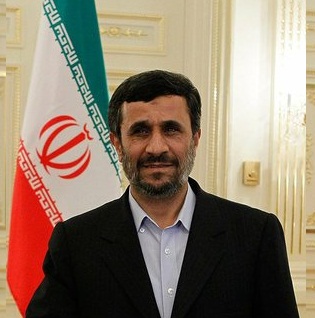2012's Nuclear fault lines: Iran and Japan


The atom is starting to stage a comeback in the U.S., but some of nuclear power's most nagging pitfalls might dominate deliberations this year. Concerns about non-proliferation and nuclear fallout could climb depending upon the outcome of events in Iran and Japan.
A 30-year lull in new reactor construction ended earlier this month when the Nuclear Regulatory Commission (NRC) approved licenses for Southern Company to bring new capacity online this decade. Both government and utilities are advocating more modern reactor designs that promise enhanced safety.
However, fault lines could form in public opinion if nuclear technology isn't used peacefully overseas, or could even literally in Japan. The Fukushima site is more earthquake prone than scientists previously knew.
Non-proliferation has helped establish treaty commitments for the peaceful use of nuclear technologies, nuclear safety, and security. That requires nations hosting reactors to have a strong, effective, and nuclear regulator like the NRC. Iran has abrogated its treaty commitments.
Iran's implacable insistence on advancing its nuclear program raises the specter of conflict as well as the potential for nuclear technology to be used for nefarious purposes. It also offers no assurances to the international community, or its people, about appropriate levels of nuclear safety.
Today, Iran announced nuclear technology that would make weaponization possible. President Mahmoud Ahmadinejad said that Iran's intention is to build technology for uranium enrichment, and he revealed domestically made fuel rods. United Nations sanctions haven't halted its progress.
Americans became hysterical after a false mention of "yellowcake" before the Iraq War. It's doubtful that the public would feel comfortable about the broadening adoption of nuclear technology by potential rivals. Despite treaty successes elsewhere in the world, negative public sentiment could hamper further energy development, or at least delay it by making technology sharing taboo.
The window of opportunity that nuclear power's proponents have to position it as a carbon free solution to world energy problems might close should there be any more accidents, a regional nuclear arms race, or conflict prompted by the advent of an Iranian bomb.
Of course, following the rules doesn't always mean that there will be a positive outcome. Japan was considered to be a treaty compliance success story (despite the industry regulating itself), and then the Fukushima meltdowns happened last spring. The danger that's lurking underground could resurface.
A peer reviewed study by Japanese geologists found that there is a strong possibility for another earthquake in eastern Japan, but this time it would happen much closer to ground zero. The Mar. 11 earthquake reawakened a fault near Fukushima, and geologists are now calling for preemptive safety measures.
"The similar structures under the Iwaki source area and the Fukushima nuclear power plant suggest that the security of the nuclear power plant site should be strengthened to withstand potential large earthquakes in the future," the study's authors wrote.
That's not to say that there would be another Fukushima type catastrophe in Eastern Japan this year. Another earthquake would just make an already precarious situation even worse, and increase objections to nuclear power around the globe - probably more so than a nuclear Iran would. Over 17 million Americans live within 19 miles from a plant.
The Indian Point nuclear power plant sat sleepily 35 miles outside of Manhattan (also by a fault line) before Fukushima, and then the meltdowns prompted the New York Times to ask if it could be the next. If something else happens, New Yorkers would again ask, "could that happen here?"
We live in an era where bad news travels fast. Incidents that provoke fear about nuclear technology will counteract its acceptance and make it dramatically more difficult for the public to be sold on a building binge of new plutonium fuel reactors - even if they are safer.
I might be overstating the case, but nuclear power is resting on a fault line. Safety and the responsible usage of the atom are key to its future.
Related on SmartPlanet:
- Nuclear, solved: small ‘modular’ reactors on an assembly line?
- Small nuclear reactors - America’s energy future?
- Nuclear safety in the U.S. a slow affair
- Nuclear power post Fukushima
- Fukushima ocean radiation could pose sleeper threat
- What the NRC really knew about Fukushima
- Nuclear meltdowns nearly made northern Japan uninhabitable
- Do we need to worry about radiation in our milk?
- Elevated radiation levels widespread in eastern Japan
- Test show Japanese child exposed to radiation
- Rice crops threatened by radiation
- Meet the future of nuclear power: eight guys in China
- Scientists: nuclear power isn’t viable without corporate welfare
This post was originally published on Smartplanet.com